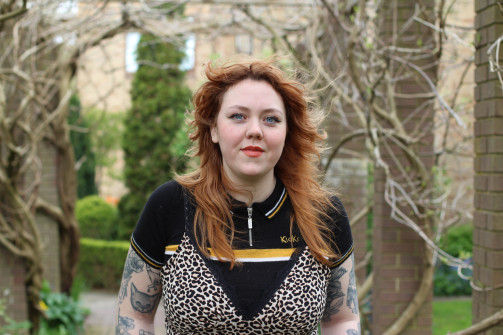Celebrations at April graduation
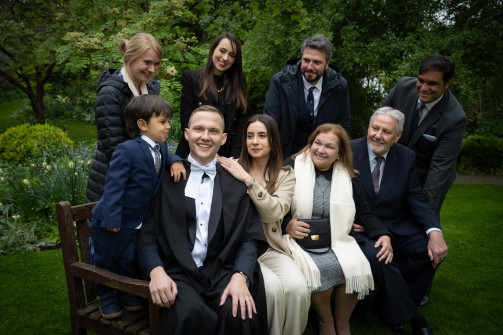
Code of Practice
1. Introduction
1.1 Wolfson College believes that closed circuit television systems (CCTV) and other surveillance systems have a legitimate role to play in helping to maintain a safe and secure environment for our students, staff and visitors. However, we recognise that this may raise concerns about the effect on individuals and their privacy. This Code of Practice is intended to address such concerns. Images recorded by surveillance systems are personal data which much be processed in accordance with data protection laws. The College is committed to complying with its legal obligations and ensuring that the legal rights of individuals, relating to their personal data, are recognised and respected.
1.2 This Code of Practice applies only to the College owned system, which will be known as the CCTV system.
1.3 Fixed cameras are located in various areas around the College site including roadways, car parks, buildings, vulnerable public facing offices and walkways, academic buildings and retail and licensed premises.
The College will never engage in covert monitoring or surveillance (that is where individuals are unaware that the monitoring or surveillance is taking place) unless, in highly exceptional circumstances, there are reasonable grounds to suspect that criminal activity or extremely serious malpractice is taking place and, after suitable consideration, we reasonably believe there is no less intrusive way to tackle the issue. In the unlikely event that covert monitoring is considered to be justified, it will only be carried out in strict compliance with paragraph 3.5 below.
1.4 The cameras provide images that are suitable for the specified purposes for which they are installed (i.e. monitoring, detection, prevention, recognition and identification) and will be regularly checked to ensure images remain fit for purpose.
1.6 Images are recorded locally within College - these are viewable by a limited number of management and staff who have the facility to monitor cameras sited within the College site.
2. Objectives for the Use of the College CCTV System
2.1 The objectives for the use of the CCTV system is to:
i. Assist in providing a safe and secure environment for the benefit of those who might work, study, live in or visit the College.
ii. Reduce crime and the fear of crime by reassuring students, staff and visitors.
iii. Deter and detect crime, public disorder and anti-social behaviour.
iv. Identify, apprehend and prosecute offenders in relation to crime, public disorder and anti-social behaviour.
v. Monitor crowd movements during College events.
vi. Monitor and assist with traffic management.
vii. Assist in the monitoring and deployment of Porters and/or security staff during normal duties and emergency situations.
viii. Protect Porters and/or other staff from undue threats and violence whilst going about their duties.
ix. Obtain evidence for use in the investigation of criminal activity, breaches of health and safety legislation and, where appropriate, breaches of student and staff disciplinary procedures.
x. Provide Public Agencies (such as the Police, Health and Safety Executive etc.) and the College with evidence upon which to take criminal, civil and where permissible disciplinary action respectively.
3. Procedural and Administrative Notes
3.1 The Bursar retains overall responsibility for the CCTV system and delegates the day-to-day management to the Head Porter. It is the joint responsibility of the Bursar and the Head Porter to ensure that all CCTV within the College is managed in line with this Code of Practice, the current CCTV Code of Practice produced by the Information Commissioner’s Office, the current Surveillance Camera Code of Practice issued by the Home Office and the General Data Protection Regulation .
3.2 All images produced by the systems remain the property and copyright of the College.
3.3 The purpose of CCTV is not to monitor staff activity, although it may be used to establish the facts of any crime, public disorder or anti-social behaviour including those potentially perpetrated by employees. The College will only use images in a staff disciplinary case when there is an allegation of gross and other serious misconduct and where there is a likelihood that the images will either prove or disprove the allegation. In all such cases, the Investigating Manager will formally request access to images from the Head Porter. It is the responsibility of the Head Porter to ensure all such requests are in accordance with 3.1 above. As with all personal information, where access is given, the confidentiality of these images and who is able to access them will be closely controlled by all involved in accordance with the General Data Protection Regulation.
3.4 Likewise, the images will only be sought as evidence if a serious student discipline case is being conducted through the formal procedures set out in the College’s Statutes and Ordinances.
3.5 Covert monitoring will only be carried out with the express authorisation of the Bursar. The decision to carry out covert monitoring will be fully documented and will set out how the decision to use convert means was reached and by whom. The risk of intrusion CCTV Code of Practice - 27 Sept 2019
on innocent individuals will always be a primary consideration in reaching any such decision. Only limited numbers of people will be involved in any covert monitoring and such monitoring will only be carried out for a limited and reasonable period of time consistent with the objectives of making the recording.
3.6 Small Unmanned Aircraft (Drones) are the subject of CAA Regulations. The use of such aircraft to obtain photographic images and data on or over the College site will not only be subject to CAA Regulations, but must also comply with the General Data Protection Regulation and CCTV Codes of Practice cited in this document. Further reference can be obtained through the College’s Drone Policy.
3.7 The objectives outlined in Section 2 of this code will be closely followed when assessing the requirements for new CCTV installations. Similarly, if designated usage of any area changes it will be necessary to assess whether the location of cameras remains justified in meeting the stated purpose and whether there is a case for removal or relocation.
4. College Porters’ Lodge
4.1 The Porters’ Lodge is capable of receiving images from throughout the site. It is staffed 24 hours a day by College Porters.
4.2 The Porters’ Lodge is also equipped with a Home Office licensed radio system, linking it with College Porters, who provide security patrols and are able to respond to incidents identified on the CCTV monitors.
5. Data Protection
5.1 This Code of Practice reflects the spirit and guidance issued by the Information Commissioner’s Office as documented in the current CCTV Code of Practice and the Surveillance Camera Code of Practice issued by the Home Office and will not be used to invade the privacy of any individual, residence, business or other private premises, buildings or land.
5.2 The College is committed to complying with the requirements of General Data Protection legislation and will operate all CCTV systems in accordance with the data protection principles and the guiding principles set out in the CCTV Surveillance Camera Commissioners’ Office ‘Code of Practice’.
5.3 All College Porters involved in operating the College CCTV system will be made aware of the objectives of this Code, as set out in Section 2, and will be permitted only to use the system to achieve those objectives.
5.4 All College Porters involved in operating the CCTV system will be provided with access to this Code for reference and compliance purposes.
5.5 The College recognises the importance of strict guidelines in relation to access to, and disclosure of, recorded images. The restrictions relating to this are set out in this Code and the rights of individuals under Data Protection legislation.
6. Administration
6.1 In respect of the CCTV system, it will be the responsibility of the Head Porter, or in their absence their deputising members of staff, to:–
i. Select camera sites and initial areas to be viewed and ensure that a suitable assessment of the privacy implications is completed in advance of selecting new sites/areas.
ii. Be responsible for compliance with the General Data Protection Regulation insofar as it impacts upon the use of CCTV systems.
iii. Take responsibility for control of the images and make decisions on how these can be used.
iv. Ensure the system is secure and only viewed by authorised persons.*
v. Ensure that the procedures of this Code of Practice comply with the current CCTV Code of Practice produced by the Information Commissioner’s Office and the current Surveillance Camera Code of Practice issued by the Home Office.
vi. Maintain the central CCTV system incident log and records of Police or other statutory requests for images.
vii. Ensure adequate signage is erected.
viii. Regularly evaluate the system to ensure compliance with the latest legislation and national Codes of Practice
* Authorised persons include:-
When appropriate in formal investigations, members of staff, trade union officials and colleagues accompanying them, as well as students facing disciplinary action and their accompanying representatives.
6.2 In respect of the College systems it will be the responsibility of the Bursar to:-
i. Clearly communicate the specific purposes of the recording of and use of images and objectives to all relevant staff.
ii. Ensure that the practices and procedures comply with the current CCTV Code of Practice produced by the Information Commissioner’s Office and the current Surveillance Camera Code of Practice issued by the Home Office.
iii. Carry out annual audits to check that the College complies with the practices and procedures set out in the Codes of Practice mentioned in Paragraph ii. above.
iv. Ensure that all disclosure requests received from the Police or other investigatory bodies (e.g. Health and Safety Executive) are held for future reference for a suitable period.
v. Ensure that all data and images are erased after a period of 3 months unless retained for evidential purposes.
vi. Ensure that camera sites and areas to be viewed follow the 12 principles of the Surveillance Camera Code of Practice issued by the Home Office.
6.3 It will be the responsibility of the individual operating person/s, including authorised departmental staff, to –
i. Select appropriate images to be recorded so as to comply with the objectives outlined above.
ii. Ensure that targeting of individuals with the cameras is only conducted when there is reasonable suspicion that the person falls within one of the objectives set above e.g. committing a criminal offence.
iii. Not to view into private property and be mindful of privacy within any accommodation.
iv. Complete a CCTV incident log as appropriate.
7. Storing and Viewing of Images
7.1 All images recorded digitally on College cameras are stored on computer/server hard drives and although the images can be searched, it is not possible to tamper with or alter them.
7.2 In the event of the Police requiring images, they can be ‘exported’ for evidence in court, on receipt of the appropriate requests.
7.3 CCTV images should not be kept for longer than is strictly necessary to meet the purpose of the recording. The CCTV system images are retained for a maximum of 31 days, however any relevant images can be ‘locked’ on the hard drive for future reference.
7.4 All images and data on the system will be erased after a maximum of 3 months unless required for evidential purposes.
7.5 Locked images must be reviewed on a 3 monthly basis and any not still required for evidential purposes should be deleted. Images that have been retained for evidential purposes should be deleted as soon as they are no longer required
7.6 In the College, the viewing of live images on monitors is restricted to the College Porters, or authorised personnel as detailed in 6.1.
7.7 Images must be viewed confidentially in secure private offices.
7.8 All images (including especially portable media) shall be sufficiently protected to ensure that they do not fall into the wrong hands. This will include technical, organisational and physical security. A record will be kept to show to whom any copy is supplied.
7.9 Requests to view images or for image disclosure should be made in writing to the Bursar.
8. Disclosure
8.1 The following guidelines will be adhered to in relation to disclosure of images:-
i. Will be in line with the above objectives.
ii. Will be controlled under the supervision of the Bursar, Domestic Bursar or Head Porter in consultation with the College Data Protection Lead, if necessary.
iii. A log will be maintained itemising the date, time(s), camera, person copying, person receiving and reason for the disclosure.
iv. The appropriate disclosure documentation from the Police or other outside agencies will be filed for future reference.
v. Images must not be forwarded to the media for entertainment purposes or be placed on the internet.
vi. Images must not be copied in any way, e.g. photographed, downloaded or printed for use other than described in the objectives.
vii. Images will only be released to the media for identification purposes in liaison with the Police or other law enforcement agency.
viii. The method of disclosing images should be secure to ensure they are only seen by the intended recipient.
ix. Images of third parties not relevant to the investigation should be obscured where possible to prevent unnecessary identification.
Even if a system was not established to prevent and detect crime, it would still be acceptable to disclose images to law enforcement agencies if failure to do so would be likely to prejudice the prevention and detection of crime.
8.2 Any other requests for images should be routed via the Bursar, Domestic Bursar or Head Porter, as disclosure of these may be unfair to the individuals concerned. In some limited circumstances it may be appropriate to release images to a third party, where their needs outweigh those of the individuals whose images are recorded.
8.3 The College has discretion to refuse any third party request for information unless there is an overriding legal obligation such as a court order or information access rights. Once an image has been disclosed to another body, such as the police, then they become the data controller for their copy of that image. It is their responsibility to comply with the General Data Protection Regulation in relation to any further disclosures.
9. Signage
9.1 Signage has been erected at the main entrances to the College site and at other locations where CCTV is in use, informing CCTV surveillance is in operation.
9.2 The signs contain details of the College and a contact number for Security.
9.3 It is the responsibility of the Head Porter to ensure adequate signage is erected.
10. Subject Access Rights
10.1 Individuals whose images are recorded have a right to request access to copies of images of themselves and, unless they agree otherwise or an exemption applies, to be provided with a copy of the images. All such requests should be made to the Bursar. Staff should not attempt to handle or answer these requests themselves.
10.2 The Bursar will process such requests in accordance with the relevant legislation and best practice. In particular, if images of third parties are also shown with the images of the person who has made the access request, consideration will be given as to whether there is need to obscure the images of the third parties.
11. Freedom of Information
11.1 The College may receive requests under the Freedom of Information Act 2000 (FOIA) for CCTV images. All such requests are dealt with by the Bursar.
11.2 The College will process such requests in accordance with the relevant legislation and best practice. In particular, consideration will be given to the privacy rights of any identifiable individuals.
12. Use of CCTV Systems
12.1 All College Porters and other authorised users (as defined in paragraph 6 above) must read this Code of Practice prior to being instructed on the operation of any system.
12.2 Each system can be used to observe the College site and areas under surveillance and identify incidents that require a response; the response should be proportionate to the incident being witnessed. On some occasions the deployment of a College Porter may be sufficient, on other occasions contacting the Police to respond may be the appropriate action.
12.3 Such surveillance should be in accordance with the stipulated objectives.
12.4 Viewing monitors should be password protected and switched off when not in use to prevent unauthorised use or viewing.
13. Complaints
13.1 Complaints received in relation to the use of CCTV systems should be made to the Bursar who will consult with College Senior Management Team and where relevant, investigate the allegation or complaint under the College’s procedures.
13.2 Complaints in relation to the disclosure or supply of images should be made in writing to the Bursar.
14. Changes to this Code of Practice
14.1 Changes to this Code are to be ratified by the College Council on the recommendation of the Bursar.
|
Appendix A – Glossary of Terms Terms |
Meaning |
|
CAA |
Civil Aviation Authority |
|
CCTV |
Closed Circuit Television System |
|
FOIA |
Freedom of Information Act |
|
HR |
Human Resources |
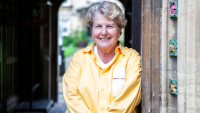
We are delighted to welcome Sandi Toksvig OBE as our speaker for Wolfson's prestigious Lee Lecture this year.

Join us for the 2024 Wolfson Research Event: an interdisciplinary academic conference organised by students to showcase the diversity of the research carried out by Wolfson students.
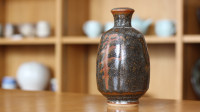
A display of works from the Bradshaw-Bubier studio pottery collection.
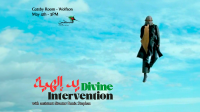
Screening of Elia Suleiman’s Divine Intervention, in conversation with assistant director Rania Stephan.
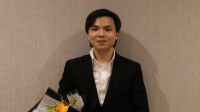
Wolfson College's inaugural Ian Cross Instrumental Scholarship Concert will be given by pianist Samuel Foo with works by Bach, Brahms and Ravel.



